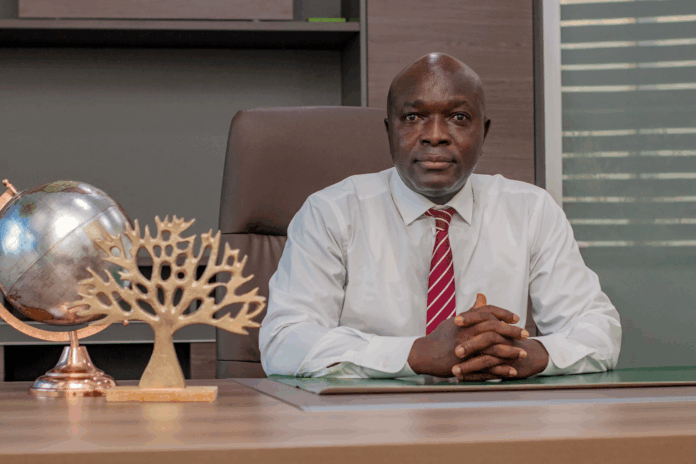On November 13, Finance Minister Dr. Cassiel Ato Forson unveiled the 2026 budget before a boisterous Parliament, pledging tax reliefs for businesses, bold industrial policies, 800,000 jobs, and expanded social protection under a disciplined fiscal framework.
Though budgets are an annual ritual, this one feels like a bold blueprint for transformation, not just recovery. But will these ambitious plans move from paper to pavement?
For entrepreneurs like us, Ghana—and indeed Africa’s—Achilles heel has never been planning; it has always been execution.
For decades, we’ve seen brilliant blueprints gather dust while citizens wait for promises to materialize. Across the country and continent, roads remain unpaved, factories idle, and social interventions stall—not due to lack of vision, but because of weak follow-through.
This is why Dr. Forson’s generally well-accepted budget must deliver different results.
Moreover, the 2026 Budget offers the government a rare chance to reset its economic narrative. It now behooves every minister, agency head, and public servant to embrace the same urgency and discipline demonstrated by Dr. Forson and President Mahama.
The positives
Having observed budgets over the years, I find this one unapologetically pro-business, pro-jobs, and pro-reform:
- Tax reliefs: VAT slashed to 20%, thresholds raised to ease pressure on small and medium enterprises (SMEs)—the backbone of the economy—and the COVID-19 Health Recovery Levy scrapped. These measures will inject liquidity into businesses and restore confidence in an economy battered by years of turbulence and high taxes.
- Industrial push: The Feed the Industry Programme will link agriculture to manufacturing, ensuring factories run at 70–80% capacity instead of the current 30–40%. Add to that the Oil Palm Development Policy and agro-processing plants for cashew, rice, poultry, and shea, which could spark a true industrial renaissance.
- Jobs, jobs, jobs: Over 800,000 jobs are targeted for 2026 through infrastructure projects, TVET expansion, and the 24-Hour Economy initiative. Allocations are clear, including GH¢170 million for apprenticeships, GH¢110 million for round-the-clock operations, and billions for roads, housing, and energy.
- Social protection: Free SHS fully funded, NHIS uncapped, LEAP expanded, and school feeding scaled up. These are not token gestures but structural commitments to inclusion.
- Fiscal discipline anchored in law: A primary surplus of 1.5% of GDP is now a statutory requirement. Debt-to-GDP is capped at 45% by 2034/35. Procurement reforms mandate electronic platforms for transparency.
Why execution is king
While these policies are bold, comprehensive, and enduring, plans alone don’t build roads—bulldozers do. Policies don’t create jobs—projects do.
Ghana and Africa’s development graveyard is littered with brilliant strategies that died in the hands of bureaucracy. Ghana cannot afford to repeat that cycle.
The finance minister and President may have done their part by presenting concrete policies in a budget. But the baton now passes to sector ministers, agency heads, and implementing officers. They must move from PowerPoint to pavement, from press conferences to performance, and from plans to actions.
Execution demands three things:
- Speed: Delays kill momentum. If procurement bottlenecks stall the Big Push Infrastructure Programme, job targets will evaporate.
- Accountability: Every cedi must deliver value. The Compliance League Table introduced by the Finance Ministry is a good start, but it must bite. Institutions should be publicly ranked, rewarded for efficiency, and sanctioned for inertia.
- Collaboration: Ministries cannot work in silos. Agriculture must talk to Trade. Energy must sync with Industry. Education must align with Labour. Transformation is a team sport, not an individual glory.
Why I believe
Skeptics will ask: “What’s different this time?” My answer: track record and tone.
In less than a year, Mahama’s administration has achieved what many thought impossible: inflation down from 23.8% to 8%, the cedi appreciating by 34%, and public debt reduced from 68.9% to 45% of GDP. These are real outcomes that affect business revenue and planning.
Dr. Forson has restored fiscal discipline without strangling growth, renegotiated independent power producer contracts to save US$250 million, and cut cocoa roads debt from GH¢21 billion to GH¢6 billion. This is evidence of a government acting in the public interest.
But leadership at the top is not enough. The relevant catalyst must be ministers and agency heads matching this urgency. Ghana’s future cannot hinge on two men; it must rest on an ecosystem of execution.
Way forward
The government now faces a bold challenge: prove the public right.
They need to show that Ghana can break the cycle of grand plans and poor delivery. This budget must not be another glossy document filed away in archives.
I humbly suggest:
- Ministers: Own your targets. Publish quarterly scorecards. Let citizens track progress in real time.
- Agency heads: Cut the red tape. Move from process obsession to outcome obsession.
- Procurement officers: Remember this—every delay is a job denied, every inflated contract is a classroom unfunded, and hundreds of lives deprived of essential services.
The world is moving fast. Côte d’Ivoire is scaling agro-processing, Rwanda is doubling down on digital leadership, and Nigeria is pushing energy reforms. Ghana cannot lag.
The private sector is ready, investors are watching, and the diaspora is hopeful. But hope needs proof—and that proof comes from execution.
The writer is a businessman and philanthropist.
READ ALSO:


